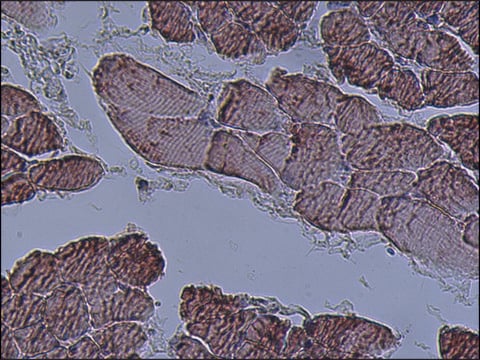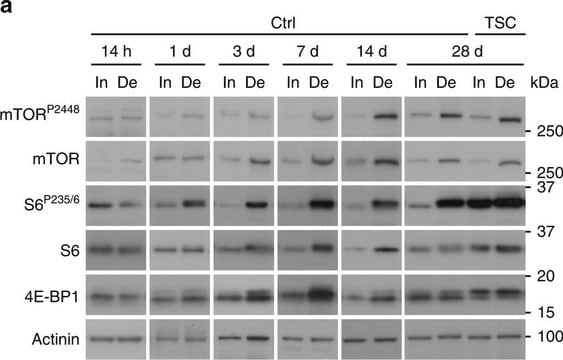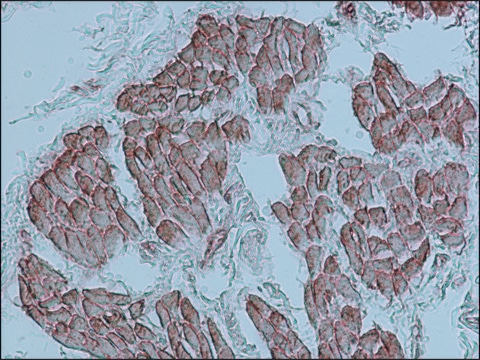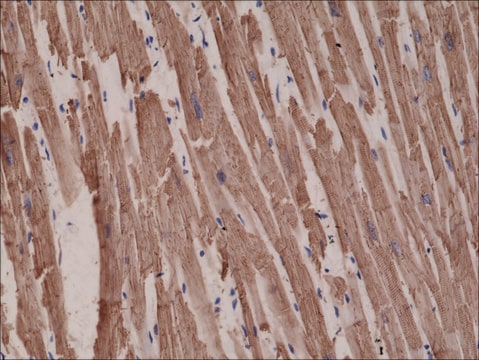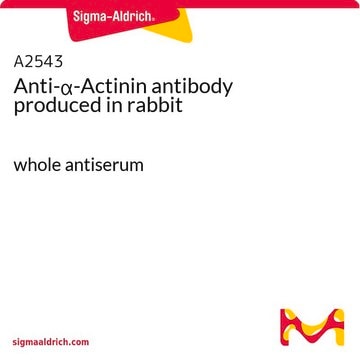A2172
Monoclonal Anti-Actin (α-Sarcomeric) antibody produced in mouse
clone 5C5, ascites fluid
Synonyme(s) :
Mouse Anti-Actin
About This Item
Produits recommandés
Source biologique
mouse
Conjugué
unconjugated
Forme d'anticorps
ascites fluid
Type de produit anticorps
primary antibodies
Clone
5C5, monoclonal
Contient
15 mM sodium azide
Espèces réactives
rabbit, carp, rat, sheep, guinea pig, human, snake, bovine, frog
Technique(s)
immunohistochemistry (formalin-fixed, paraffin-embedded sections): 1:500 using human skeletal and cardiac muscle
immunohistochemistry (frozen sections): suitable using human skeletal and cardiac muscle
indirect ELISA: suitable
western blot: suitable
Isotype
IgM
Conditions d'expédition
dry ice
Température de stockage
−20°C
Modification post-traductionnelle de la cible
unmodified
Informations sur le gène
human ... ACTA1(58) , ACTC1(70)
mouse ... Rwdd2a(69519)
rat ... Acta1(29437) , Actc1(29275)
Description générale
Immunogène
Application
- immunofluorescence
- double immunostaining
- double labelling terminal deoxynucleotidyl transferase dUTP nick end labeling (TUNEL) immunofluorescence staining.
Actions biochimiques/physiologiques
Forme physique
Autres remarques
Clause de non-responsabilité
Not finding the right product?
Try our Outil de sélection de produits.
Code de la classe de stockage
10 - Combustible liquids
Classe de danger pour l'eau (WGK)
WGK 3
Point d'éclair (°F)
Not applicable
Point d'éclair (°C)
Not applicable
Certificats d'analyse (COA)
Recherchez un Certificats d'analyse (COA) en saisissant le numéro de lot du produit. Les numéros de lot figurent sur l'étiquette du produit après les mots "Lot" ou "Batch".
Déjà en possession de ce produit ?
Retrouvez la documentation relative aux produits que vous avez récemment achetés dans la Bibliothèque de documents.
Les clients ont également consulté
Notre équipe de scientifiques dispose d'une expérience dans tous les secteurs de la recherche, notamment en sciences de la vie, science des matériaux, synthèse chimique, chromatographie, analyse et dans de nombreux autres domaines..
Contacter notre Service technique


